Search Results
Showing results 21 to 40 of 327

Water Treatment
Source Institutions
Water treatment on a large scale enables the supply of clean drinking water to communities.

Go with the Flow
Source Institutions
Learners draw comic-style pictures to show the water cycle. From a starting picture, one learner draws what happens to the water in the next panel, then passes the comic strip to another learner.
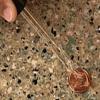
Penny Drop
Source Institutions
In this quick activity about the properties of water (page 1 of PDF under SciGirls Activity: Malformed Frogs), learners will use an eyedropper to slowly place one drop of water at a time onto a penny,

Changing the Density of a Liquid: Heating and Cooling
Source Institutions
Learners investigate how the temperature of water affects its density.
Big and Little Cups
Source Institutions
In this indoor or outdoor water activity, learners pour water from small cups to large cups and containers. In doing so, they discover water takes the shape of its container.
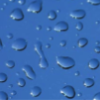
A Little Drop of Water: Cohesion
Source Institutions
Learners explore water's property of cohesion through two investigations.
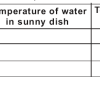
Cool Trees
Source Institutions
This warm weather activity introduces learners to the impact trees have on blocking the sun's heat and reducing temperature on the Earth's surface.
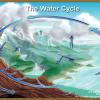
The Incredible Journey
Source Institutions
In this weather activity (page 4 of the PDF), learners will explore the water cycle through an interactive game.
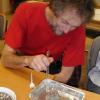
Electrostatic Water Attraction
Source Institutions
In this activity, learners conduct a simple experiment to see how electrically charged things like plastic attract electrically neutral things like water.

Who Dirtied The Water?
Source Institutions
In this activity, learners receive a labeled plastic film canister containing a material representing a pollutant (i.e. pencil shavings = a beaver's wood chips).

Heat Capacity: Can't Take the Heat?
Source Institutions
Why is ocean water sometimes the warmest when the average daily air temperature starts to drop? In this activity, learners explore the differing heat capacities of water and air using real data.
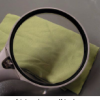
Stuck on You: Adhesion
Source Institutions
Learners explore water adhesion and learn about why water molecules are more strongly attracted to some substances than others.
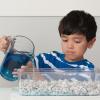
Water Underground
Source Institutions
Many people get water from a source deep underground, called groundwater.
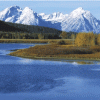
What-a-cycle
Source Institutions
In this activity, learners act as water molecules and travel through parts of the water cycle to discover that it is more complex than just water moving from the ground to the atmosphere.

Conductivity: Salty Water
Source Institutions
Water, whether fresh or salty, serves as one of the best electrical conductors on the planet. Does salt effect its conductivity?
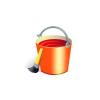
Sunny Day Painting
Source Institutions
In this activity, learners explore properties of water and watch evaporation happen by "painting" with water in the sun.
What's So Special about Water: Absorption
Source Institutions
In this activity about water's cohesive and adhesive properties and why water molecules are attracted to each other, learners test if objects repel or absorb water.

Can Nutrients in Water Cause Harm?
Source Institutions
In this water pollution activity, learners create pond water cultures and investigate the effects of adding chemicals or natural nutrients.
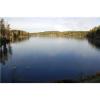
Water Walk
Source Institutions
Learners take a field trip along a local body of water and conduct a visual survey to discover information about local land use and water quality.
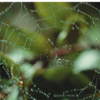
Stick to It: Adhesion II
Source Institutions
Water sticks to all kinds of things in nature — flowers, leaves, spider webs - and doesn't stick to others, such as a duck's back.
